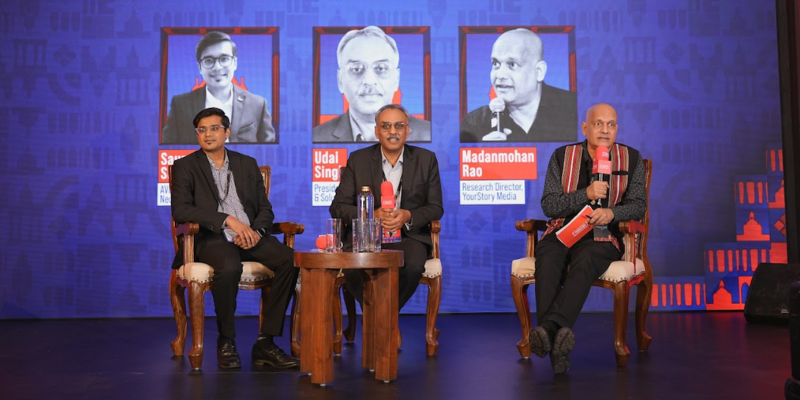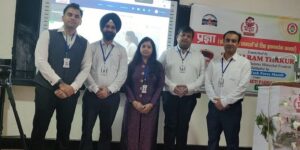
The world of work is a dynamic one. New technologies emerge seemingly overnight, transforming entire industries and demanding new skill sets from professionals. In this rapidly evolving landscape, staying relevant and prepared for the future workforce is more important than ever. To navigate this changing environment, individuals and businesses alike need to embrace continuous learning and adapt to the latest trends.
At a recent panel discussion at Techsparks Mumbai, Saumil Shah, AVP – Sales, NeoSoft and Udai Singh, President – Global Products and Solutions and Delivery, NIIT, delved into key insights regarding the future of learning, outsourcing versus in-house development for startups, academia collaboration, staying updated with technology trends, and upskilling the existing workforce.
Here are the main takeaways from the session titled ‘Accelerating India’s emerging tech future’, which focused on the future of technology and talent.
Understanding how people learn and leveraging technology
While technology undeniably enhances learning, Singh emphasised the importance of understanding how we learn. He argued for a deeper dive into the science of learning, focusing on knowledge retention.
Singh proposed immersive environments as a powerful tool, speaking about learning Japanese, not from textbooks, but by living in a Japanese village! The challenge lies in recreating such immersive experiences within the learning process, fostering active engagement and accelerated knowledge acquisition.
Outsourcing versus in-house development for startups
Shah, a startup growth strategist, tackled a common dilemma – outsourcing versus in-house development.. He advised, “When you have an idea or prototype I would say you need to focus on business and not tech. It’s important to outsource and focus on building your business models, your revenue models, and finding the first customer that is going to pay you.”
He added that this allows startups to concentrate on business development, revenue generation, and securing initial customers. As startups mature and generate revenue, they can gradually transition to in-house teams while strategically outsourcing non-core functions, thus achieving a balanced hybrid model.
Academia collaboration and workforce readiness
Singh highlighted the rapid growth and individuals to continuously upskill, “Given the existing industry size and the fact that technology changes every three to five years, even seasoned professionals must continually upskill to stay relevant.”
He stressed the need for collaboration between academia and industry to ensure graduates are equipped with the necessary skills for the workforce. He backed the concept of ‘deep generalists’, people possessing broad viewpoints while maintaining expertise in specific areas as crucial for career longevity in the dynamic tech industry.
Staying updated with technology trends
Staying abreast of technology trends is essential for both fresh graduates and seasoned professionals. Shah emphasised the significance of engaging fresh talent to explore innovative applications of emerging technologies. However, he cautioned against blindly adopting trends such as blockchain, without discerning their practical business implications.
“Where is the business application? Where is the monetisation? I’m all about the ‘dhandha,’“ he said, advising that engaging with industry experts and conducting thorough market analysis are vital for identifying viable applications and monetisation strategies.
Upskilling the existing workforce
Addressing the challenge of upskilling seasoned professionals, Singh outlined a systematic approach focussing on defining job roles, competencies, and task-based evaluation. He stressed the importance of individuals positioning themselves as day-one contributors to teams by acquiring relevant skills. Continuous learning and adaptability are key to thriving in an environment where job roles evolve rapidly.






![Read more about the article [Funding alert] Property operations software provider Facilio raises $35M led by Dragoneer Investment](https://blog.digitalsevaa.com/wp-content/uploads/2022/02/CopyofImageTaggingNewBrandingEditorialTeamMaster1-1645510622139-300x150.jpg)
![Read more about the article [Funding alert] ElasticRun becomes 7th unicorn of 2022, raises $300M from SoftBank at $1.5B valuation](https://blog.digitalsevaa.com/wp-content/uploads/2022/02/Featureimages-newdeck29-1644318259006-300x150.png)


![Read more about the article [Funding alert] GlobalBees backs three startups, The Butternut Company, Mush and Strauss](https://blog.digitalsevaa.com/wp-content/uploads/2022/01/Imageer3m-1640798883046-300x150.jpg)